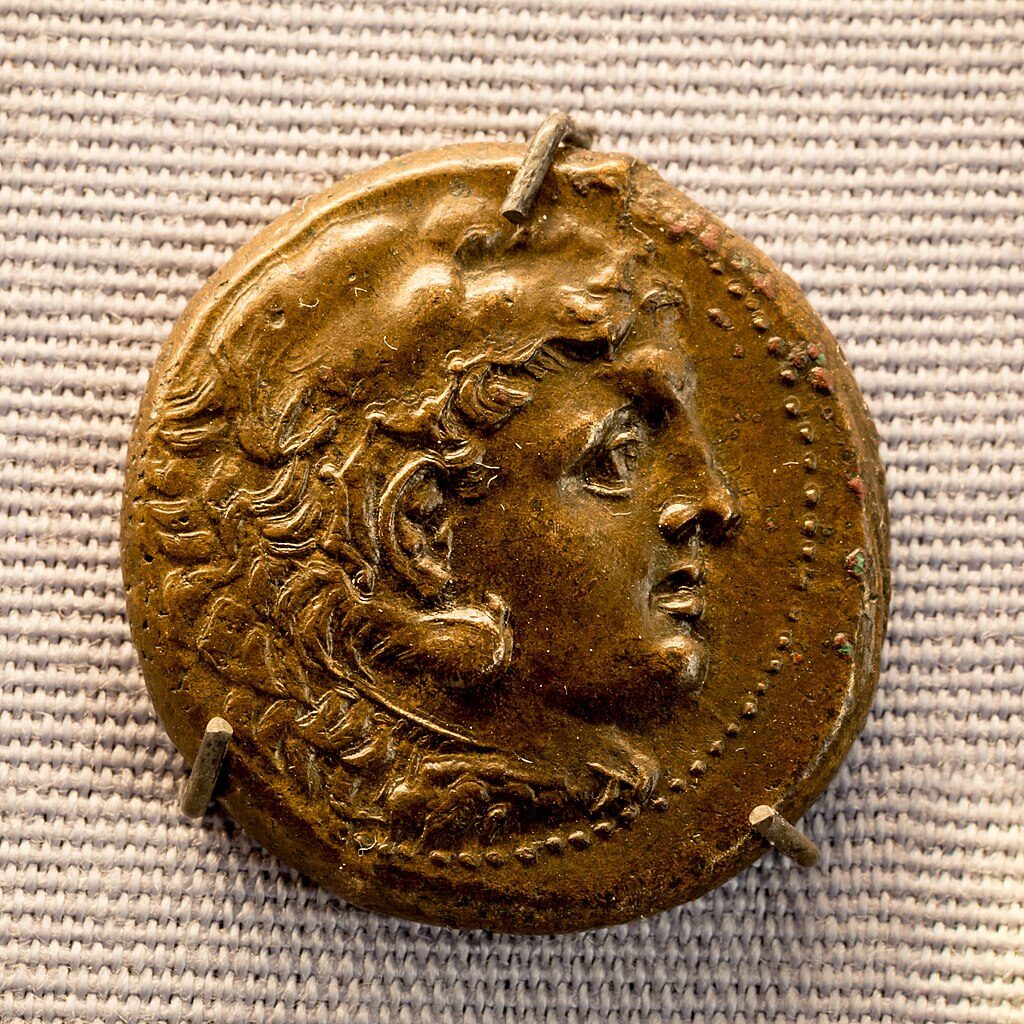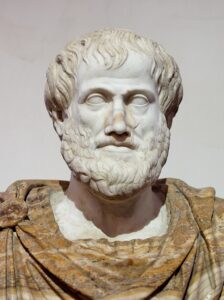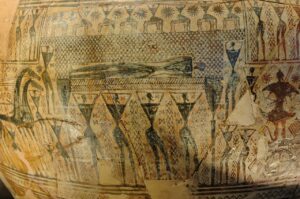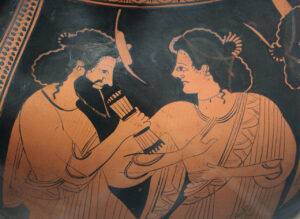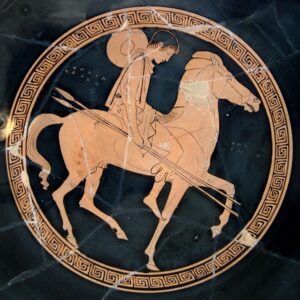The economy of ancient Greece was complex and diverse, shaped by a variety of factors including agriculture, trade, manufacturing, and slavery. These elements worked together to create a robust economic system that supported the growth and development of Greek civilization. The ancient Greeks were skilled farmers, and agriculture was the main source of livelihood for the majority of the population. The ancient Greeks also engaged in trade and commerce, both within Greece and with other Mediterranean cultures. Manufacturing and crafts were also important sectors of the ancient Greek economy.
Agriculture and the Economy of Ancient Greece
Agriculture was the backbone of the ancient Greek economy. The ancient Greeks relied heavily on farming for their survival. In fact, farming was the most common form of work for ancient Greek people and played a significant part of the ancient Greek economy. The ancient Greeks grew a variety of crops, including wheat, barley, olives, grapes, and figs. They also raised livestock, such as cows, sheep, goats, and pigs. All of the crops and livestock were important aspects of ancient Greek food and diets.
The ancient Greeks also had a sophisticated system of irrigation, which allowed them to grow crops in areas that were otherwise not suitable for farming. For instance, the rocky and mountainous nature of Greece made growing most crops difficult, but proved ideal for both olives and grapes. As such, the ancient Greek people used a form a terracing that allowed them to create partially flat strips of land on the rugged terrain.
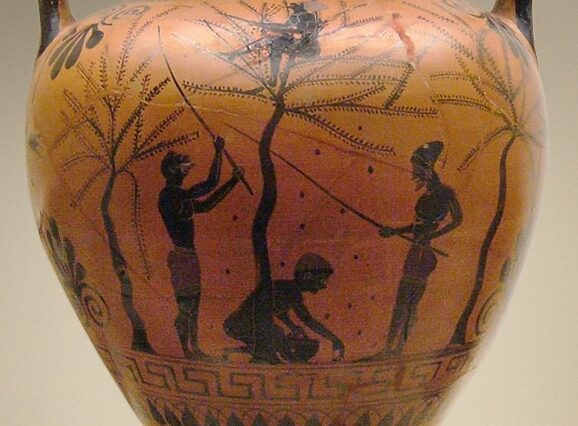
Trade and the Economy of Ancient Greece
Trade was an important part of the ancient Greek economy. The ancient Greeks traded with other civilizations, such as the Persians, Egyptians, and Phoenicians. They also established colonies throughout the Mediterranean and traded with other Greek city-states. The ancient Greeks traded a variety of goods, including agricultural products such as grain, wine, and olive oil, as well as manufactured goods such as pottery, metalwork, and textiles. They also traded luxury goods such as jewelry, precious stones, and perfumes.
The ancient Greeks engaged in trade both by land and by sea. They established a network of roads that connected the different city-states, and they also developed a strong maritime trade network. The Greeks built ships specifically designed for trade, which they used to reach their colonies and trading posts throughout the Mediterranean region.
The ancient Greeks used a system of coins for trade. The most common coin was the drachma, which was made of silver. The ancient Greeks also used bartering, where goods and services were exchanged without the use of money.
Manufacturing and the Economy of Ancient Greece
Manufacturing was another important part of the ancient Greek economy. The ancient Greeks were skilled craftsmen and made a variety of products, including pottery, sculpture, and metalwork. They also made clothing and shoes and built ships and other vehicles. The manufacturing of ancient Greece was driven by skilled artisans and craftspeople who created unique goods for sale at markets throughout Greece. In fact, artisans were one of the key options for work in ancient Greece for the Greek people. Furthermore, these craftspeople were divided into guilds, making it possible for a person to specialize in a particular craft.
Slavery and the Economy of Ancient Greece
The economy of ancient Greece was also characterized by a high degree of slavery. Slaves were used to perform a wide variety of tasks, including farming, manufacturing, and trade. Slaves were owned by both individuals and the state, and were considered to be property rather than people. This is important because slaves were key to several of the main features of the economy in ancient Greece. Furthermore, this system of slavery allowed the wealthy to increase their wealth and power, while the poor were forced to work for little or no pay.
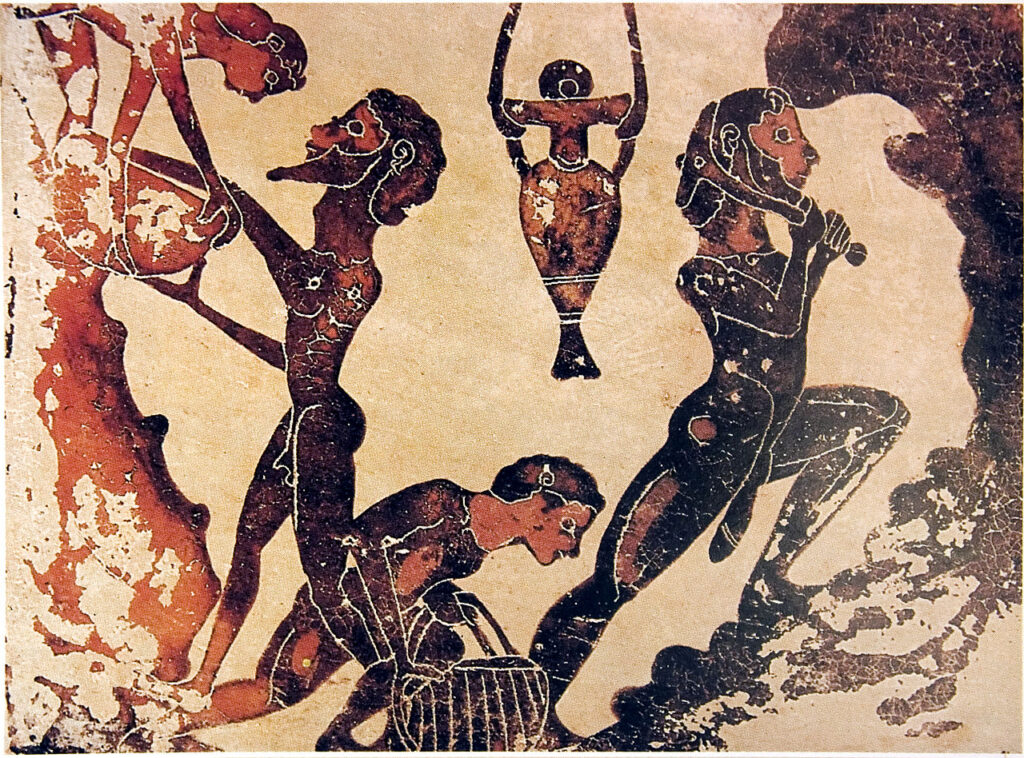
Summary of the Ancient Greek Economy
Overall, the economy of ancient Greece was based on agriculture, trade, and manufacturing. The ancient Greeks were skilled farmers, and agriculture was the main source of livelihood for the majority of the population. The ancient Greeks also engaged in trade and commerce, both within Greece and with other Mediterranean cultures. Manufacturing and crafts were also important sectors of the ancient Greek economy.

